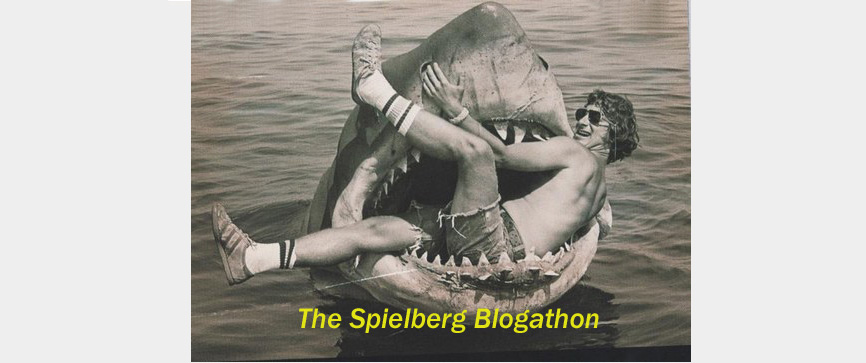
Jurassic Park (1993)
by Adam Zanzie
No question about it: Jurassic Park will stand the test of time as one of Spielberg’s more technically dazzling films. But as a character study, will it compare well to Spielberg’s richer studies of humanism? I doubt it. These characters won’t speak to future generations the way they spoke to us. The movie came out at a time when dinosaur discoveries were at their peak, paleontology was at its most celebrated and dinosaurs were every child’s favorite toy. But we live now in a new generation where that old fascination with dinosaurs is all but gone—not only will people probably not be as impressed with the film’s questions about dinosaurs as we were, but they will probably also marvel at how we could possible feel any affection for such loony characters. Yes, all of the characters undergo some painfully hokey transformations during the course of the movie—Grant cradling Lex and Tim in his arms in the final scene, confirming his maturation into a fatherly stage, is the hokiest of all. However, the moment when John Hammond looks upon his crumbling creation one last time, before being guided into the helicopter and flown off to safety, is not so hokey. It’s a reminder that the movie is mainly centered on the failed dreams of this character.
Knowledge is the Treasure: Steven Spielberg's Indiana Jones and the Kingdom of the Crystal Skull
by Lee Chase IV
The idea of God is to acknowledge a presence greater than oneself. We learn late in the movie that an ancient tribe worshiped these beings since they came from the sky, and because they were taught farming and irrigation, tools that would help keep them alive. In other words, these beings gave them the knowledge to gain the necessities of life, and to honor them, the people tied ropes around their children's skulls to elongate them in the image of these "Gods." We are critical of what we do not understand, especially when it comes to religion (or to be more precise, a religion that is not ours), but Indy is familiar with the lengths people will go to pay tribute to what they believe is true ("Depends on who your God is.").
E.T.: The Extra Terrestrial
by Ratnakar Sadasyula
In our quest to appear wise, intelligent and matured, we are unfortunately forgetting how to enjoy life. If we do something, its not because we love doing it, but because we want to be seen doing it. Maybe its time to awaken the child in us. We might not have choices in certain aspects but even when it comes to things like movies, music and books, do we have to put on an adult façade. We want to be seen liking serious and dramatic movies, else we are afraid, we might risk being called dumb. Now I don’t have anything against watching a serious movie, but is there a rule which says that just because you are an adult, you must not watch or appreciate a kid’s movie.
Encountering Spielberg: A Steven Spielberg Profile (Part 2)
by Trevor Hogg
Advance screening sessions are viewed by the director as being a useful tool in fine tuning a picture. “On Close Encounters, I had a very important decision to make,” explained Steven Spielberg, “whether or not to use the Walt Disney song When You Wish Upon a Star at the end of the movie, with Jiminy Cricket’s actual voice performing it. The only way I could tell was to have two different previews, on two different nights: one night with the song, one night without it. I then analyzed the preview cards very carefully, interviewed the people who left the theatre and made a determination that the audience wanted to be transported to another world along with Richard Dreyfuss as he walked aboard the mothership. They didn’t want to be told the film was a fantasy, and this song seemed to belie some of the authenticity.” Spielberg subsequently nixed the idea. “I didn’t want Close Encounters to end just as a dream.”
A.I. (31 Days at the Movies, Part 6)
by Sean Stangland
There's no use in dancing around it, so let's cut right to it: That third act. It has become de rigueur to criticize how Spielberg ends his films, and seemingly everyone hates the ending of "A.I." Many people still think the beings David (Haley Joel Osment) encounters at the end of the film are aliens, when they are clearly advanced mechas -- robots, just like him. They are identical in form to the statue we see at the Cybertronics building where David was built, the one David draws from memory for his "mother," Monica (Frances O'Connor).

No comments:
Post a Comment
Note: Only a member of this blog may post a comment.